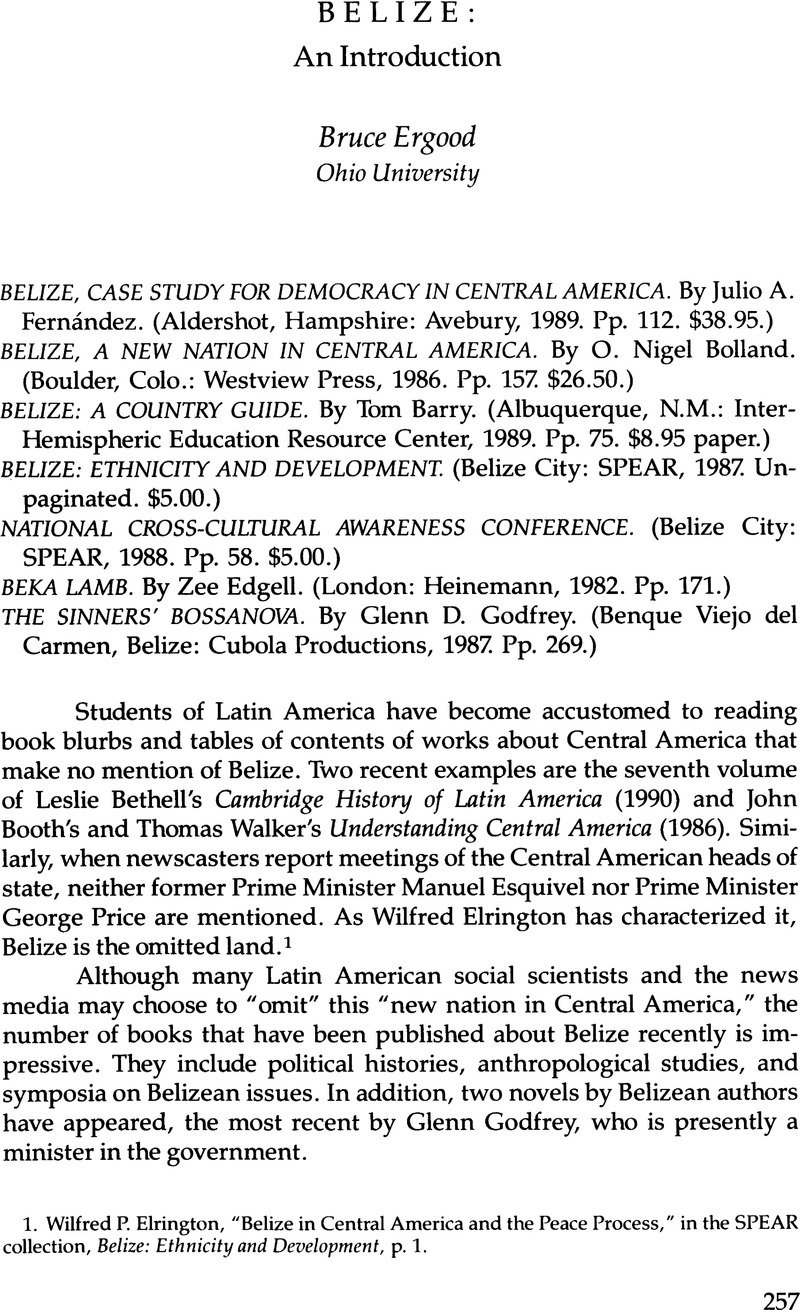Article contents
Belize: An Introduction
Review products
Published online by Cambridge University Press: 12 October 2022
Abstract

- Type
- Review Essays
- Information
- Copyright
- Copyright © 1991 by the University of Texas Press
References
Notes
1. Wilfred P. Elrington, “Belize in Central America and the Peace Process,” in the SPEAR collection, Belize: Ethnicity and Development, p. 1.
2. John Higham, “The Pot That Didn't Melt,” New York Review of Books, 12 Apr. 1990, p. 11.
3. Presumably, Fernández is among this group whose exodus he laments.
4. As Natalie Z. Davis wrote about Mark Bloc, “History's central subject… was not political events … but human beings.” See Davis, “A Modern Hero,” New York Review of Books, 26 Apr. 1990, p. 27.
5. Higham, “The Pot That Didn't Melt.”
6. Editorial, Amandala (Belize City), 16 Jan. 1987, p. 2.
7. Bruce Ergood, “The Belize National Survey,” International Third World Studies and Review 1, no. 2 (Fall 1989):263–76.
8. Ibid., 265.
9. D. A. G. Waddell, British Honduras (London: Oxford University Press, 1961); Narda Dobson, A History of Belize (London: Longman Group, 1973); and C. H. Grant, The Making of Modern Belize: Politics, Society, and British Colonialism in Central America (Cambridge: Cambridge University Press, 1976).
10. Anne Sutherland, Caye Caulker, Economic Success in a Belizean Fishing Village (Boulder, Colo.: Westview Press, 1986).
11. A similar point on the centrality of familial relations for economic enterprise success is made by Sutherland and Laurie Kroshus Medina in one chapter of Caye Caulker.
- 2
- Cited by


